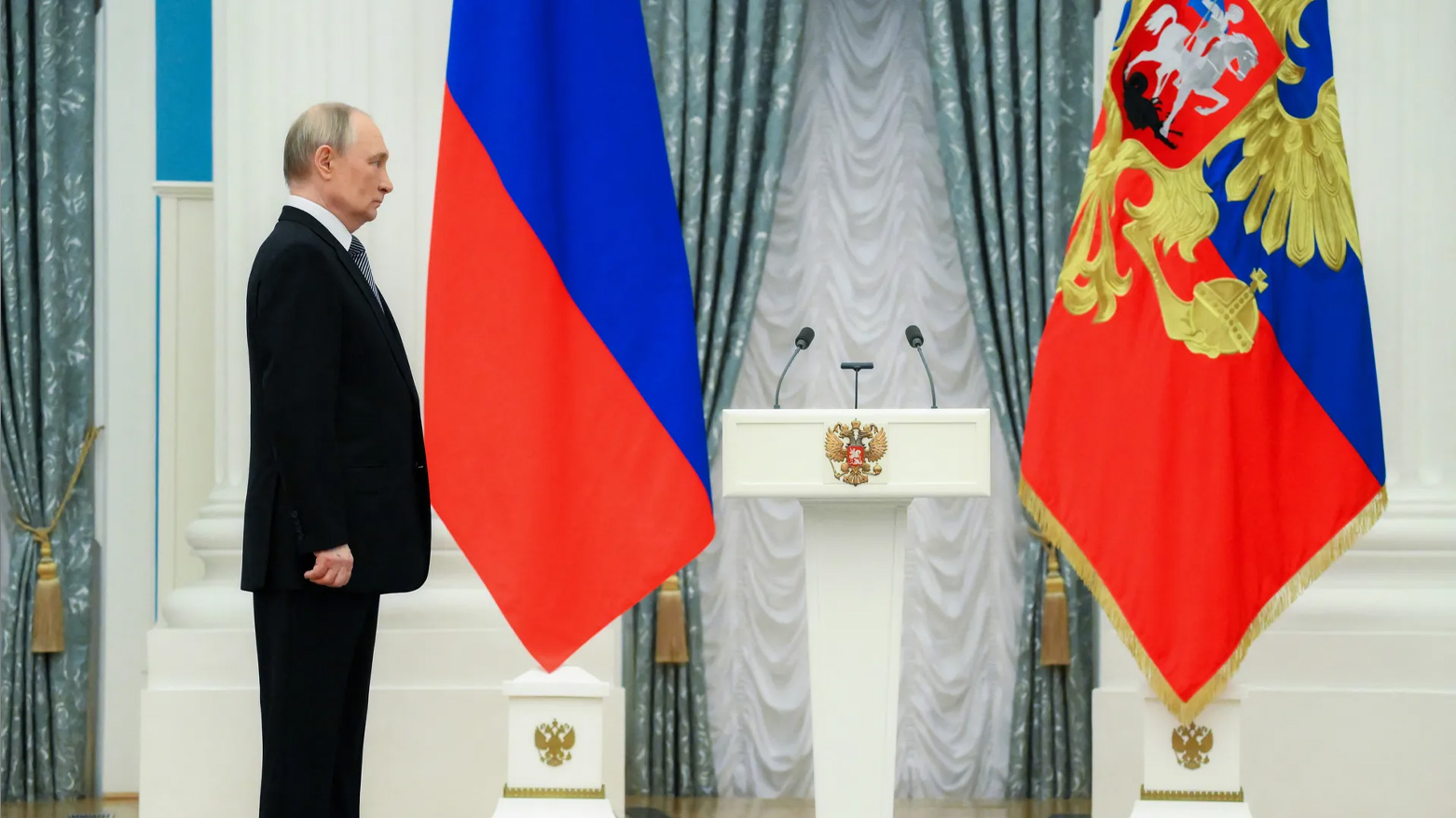Trump’s Envoy in Moscow for Ukraine Ceasefire Talks
The talks represent a critical moment in President Trump’s growing efforts to broker a 30-day ceasefire between Russia and Ukraine, with the prospect of punitive sanctions looming if negotiations fail.

By Kamaran Aziz
ERBIL (Kurdistan24) – In a bid to halt the war in Ukraine, U.S. President Donald Trump’s special envoy, Steve Witkoff, arrived in Moscow for his third round of direct talks with Russian President Vladimir Putin, marking the most senior-level engagement since the conflict began in 2022.
The talks represent a critical moment in President Trump’s growing efforts to broker a 30-day ceasefire between Russia and Ukraine, with the prospect of punitive sanctions looming if negotiations fail.
According to a series of reports by Axios, Witkoff's Moscow visit follows mounting frustration from the Trump administration over stalled negotiations. Trump, reportedly “pissed off” by recent remarks from Putin about Ukraine, has warned that failure to secure a ceasefire by the end of the month could lead to new sanctions, either through executive action or via congressional legislation.
"We will know soon enough... whether Russia is serious about peace or not," said U.S. Secretary of State Marco Rubio last week at the NATO summit in Brussels.
The backdrop to this latest diplomatic push is a flurry of activity. Witkoff recently hosted Putin’s envoy, Kirill Dmitriev, in Washington. Dmitriev, a senior figure in Russia’s negotiating team and the head of its sovereign wealth fund (CEO of the Russian Direct Investment Fund RDIF), arrived under a special waiver from U.S. sanctions, granted to allow dialogue.
While Ukraine has agreed to Trump’s proposal for an unconditional ceasefire—along with a narrower maritime ceasefire—Russia has responded with new demands, notably the lifting of certain U.S. sanctions.
Trump remains optimistic. “We are making progress. We hope that we are getting relatively close to getting a deal between Russia and Ukraine to stop the fighting,” he said during a Cabinet meeting on Thursday. On the same day, the U.S. and Russia completed a prisoner exchange, which included the release of dual U.S.-Russian national Ksenia Karelina—a development Trump credited in part to a personal request from UFC CEO Dana White.
In parallel, senior U.S. and Russian diplomats met again in Istanbul to discuss the normalization of relations between Washington and Moscow. National Security Council spokesperson Brian Hughes noted that while Trump is personally invested in the process, he is also increasingly exasperated with Russia’s position.
Speaking aboard Air Force One in March, Trump confirmed plans for a direct phone call with Putin, saying that significant progress had been made over the weekend. “We want to see if we can bring that war to an end,” he said. “Maybe we can, maybe we can’t, but I think we have a very good chance.”
According to the report by Axios, Witkoff’s previous meeting with Putin lasted four hours and was described as “solutions-based.” The envoy briefed Trump immediately afterward and joined him for high-level strategy discussions with senior advisers. Witkoff claimed Putin was receptive to Trump’s diplomatic philosophy, adding that “the two sides are a lot closer today than they were a few weeks ago.”
Ukrainian President Volodymyr Zelensky has signaled readiness for peace. Writing on X, he emphasized Ukraine’s commitment to a “reliable, durable, and decent peace.” Ukraine has not only agreed to a U.S.-proposed air and sea ceasefire but has welcomed the extension to include land operations. However, Zelensky expressed disappointment that Russia has yet to provide a meaningful response, calling it “another demonstration that Russia seeks to prolong the war.”
Putin’s foreign policy adviser Yuri Ushakov has meanwhile stated that Russia is not interested in measures that “imitate peace actions.” Russian officials have stressed the need to address the root causes of the conflict, suggesting that a ceasefire alone is insufficient.
The stakes remain high. Behind the scenes, Witkoff revealed that Trump has appointed General Keith Kellogg as Special Envoy to Ukraine, refining his previous role that spanned both Russian and Ukrainian channels. Trump reportedly made the change after detecting Russian reluctance to deal with Kellogg directly, signaling a strategic pivot in U.S. diplomatic channels.
According to Axios, U.S. officials will hold further separate talks with both Ukrainian and Russian delegations this week. Ukrainian negotiators, led by Chief of Staff Andriy Yermak and including the foreign and defense ministers, are already in place. Secretary of State Rubio has also spoken with Russian Foreign Minister Sergei Lavrov to continue momentum from earlier discussions held in Saudi Arabia.
As the war grinds into its third year, and with Trump seeking a diplomatic breakthrough that eluded his predecessors, the next few weeks may determine whether this unprecedented U.S.-led effort can halt the bloodshed—or whether it merely signals another chapter in a prolonged and brutal conflict.
